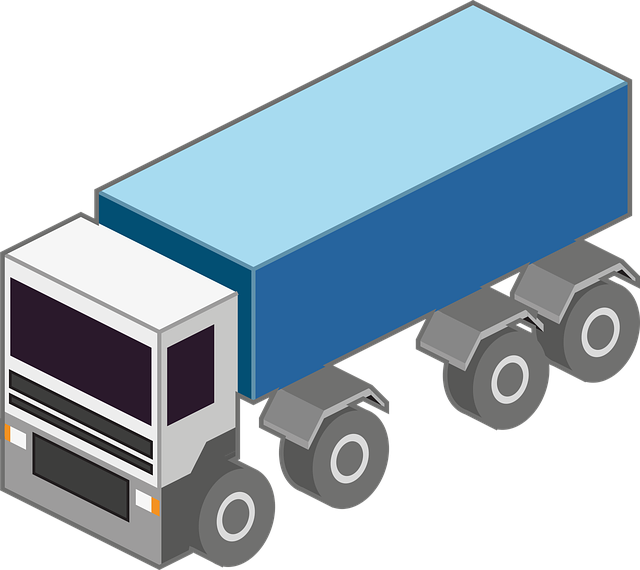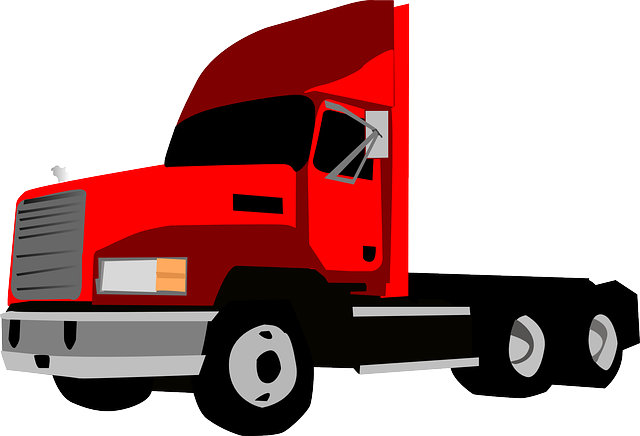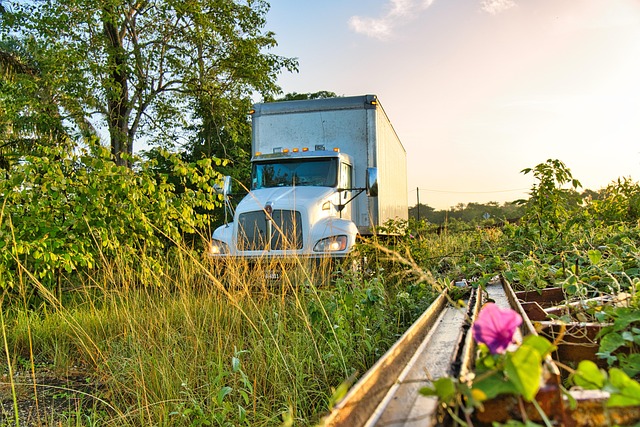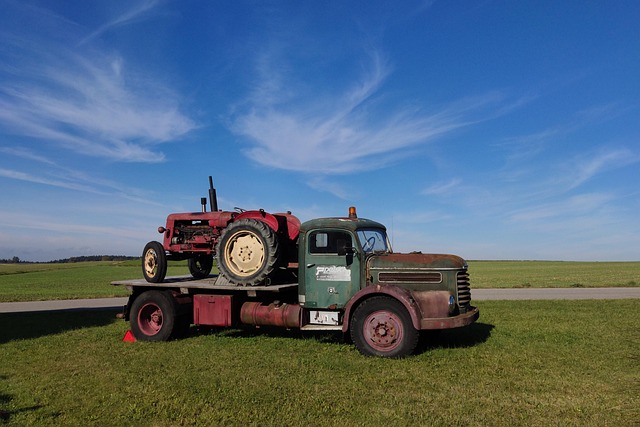Large truck operations face distinct risks including longer braking distances, specialized handling, cargo shift, long-distance travel, and infrastructure wear. Large truck insurance is crucial for safety, compliance, and protection against losses. Comprehensive coverage should include property damage, liability, cargo loss, mechanical failures, natural disasters, and hazardous materials transportation. Business interruption coverage is vital. Customized policies tailored to specific industries like construction or medical transport offer peace of mind and financial security. Proactive risk management includes regular maintenance, driver training, and regulatory compliance to minimize accidents and costs.
In the dynamic landscape of transportation, ensuring comprehensive protection is paramount, especially for large and specialized trucks navigating complex road networks. This article delves into the intricacies of large truck insurance, exploring critical aspects such as understanding unique operational risks, key coverage areas, customized policies for niche trucking sectors, and effective claims management strategies. By examining these facets, operators can mitigate potential hazards and secure peace of mind on the open road.
- Understanding the Unique Risks of Large Truck Operations
- Key Coverage Areas for Comprehensive Truck Insurance
- Customized Policies for Specialized Trucking Industries
- Navigating Claims and Risk Management Strategies
Understanding the Unique Risks of Large Truck Operations

Large truck operations present a distinct set of risks that go beyond those faced by standard vehicle owners. These risks are multifaceted, encompassing both operational and environmental factors. On the operational side, large trucks have longer braking distances, making them more susceptible to collisions in close quarters. They also require specialized handling, especially when navigating narrow roads or construction zones. Additionally, the potential for cargo shifts during transit adds another layer of complexity, necessitating robust load securing practices.
Environmental considerations are equally significant. Large trucks often operate over long distances and in diverse conditions, making them more vulnerable to weather events like severe storms or icy roads. Moreover, their size and weight can lead to increased wear and tear on infrastructure, further complicating already delicate safety dynamics. Understanding these unique risks is paramount when seeking adequate insurance coverage for large trucks, ensuring that operations remain safe, compliant, and protected against potential losses.
Key Coverage Areas for Comprehensive Truck Insurance

When considering full coverage for large and specialized trucks, several key areas must be addressed to ensure comprehensive protection. The first and foremost aspect is large truck insurance that covers both property damage and liability associated with operating these vehicles. This includes protection against accidents causing significant damage to other vehicles or properties.
Additionally, comprehensive insurance should encompass specific risks unique to large trucks, such as cargo loss or damage during transit, as well as mechanical failures or natural disasters. Coverage for business interruption due to insured events is also vital, ensuring operations can resume promptly. Moreover, depending on the nature of transportation and goods carried, specialized endorsements or policies might be necessary to cater to niche risks like hazardous materials or unusual cargo.
Customized Policies for Specialized Trucking Industries

In the specialized trucking industry, every vehicle and operation is unique. This means that a one-size-fits-all approach to insurance doesn’t cut it. That’s where customized policies come in—they cater to the specific risks and needs of large truck operations, ensuring comprehensive protection tailored to their fleet. These policies go beyond basic liability coverage, addressing specialized perils like cargo damage during transport or equipment malfunctions that may occur while navigating challenging terrain.
For example, a policy for a construction truck fleet might include coverage for on-site incidents where the vehicle is involved in setting up or tearing down equipment, as well as liability for loading and unloading processes. Similarly, a medical transport company would require specific coverage to handle the unique risks associated with moving patients, including emergency situations that may arise during transit. Customized large truck insurance policies offer peace of mind, ensuring that trucking businesses are shielded from financial losses and legal repercussions related to their specialized operations.
Navigating Claims and Risk Management Strategies

Navigating claims and risk management is a critical aspect of owning or operating large trucks. Unlike smaller vehicles, large truck insurance policies often involve more complex coverage options and considerations due to the higher potential liabilities associated with these specialized vehicles. Effective risk management starts with understanding the unique risks inherent in trucking operations, such as cargo damage, driver fatigue, and mechanical failures.
Large truck insurance providers offer various strategies to help mitigate these risks. This may include comprehensive coverage for physical damages, liability protection against third-party claims, and specific endorsements for specialized cargo or hazardous materials. Additionally, proactive risk management involves regular fleet maintenance, driver training programs, and adherence to safety regulations to minimize accidents and associated costs. These measures ensure that truck operators can confidently navigate the claims process, should an incident occur, while safeguarding their business interests in the long term.
In conclusion, navigating the complex landscape of large truck operations demands a tailored approach to insurance. By understanding the unique risks associated with these vehicles, businesses can leverage key coverage areas and customized policies to mitigate potential losses. Effective risk management strategies, coupled with proactive claims navigation, ensure that operators can continue their vital work without undue interruption, ultimately enhancing safety and efficiency in the trucking industry. Secure and comprehensive large truck insurance is not just a necessity; it’s a cornerstone of successful, modern trucking operations.
